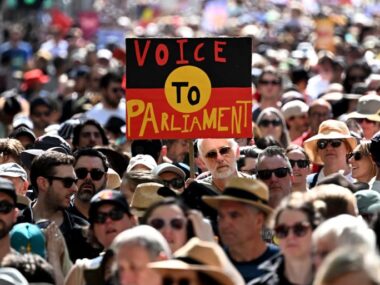Chaos Unfolds: Inside the Latest Global Crisis Impacting Millions
In the ever-evolving landscape of global affairs, the term "crisis" frequently appears on headlines, often fostering a sense of urgency and concern. However, recent developments have plunged millions into uncertainty, marking a significant upheaval that resonates across continents. As socio-political tensions, climate change, economic instability, and public health hazards converge, understanding the intricacies of this multifaceted crisis is essential for navigating the tumultuous waters ahead.
The Nature of the Crisis
This latest global crisis is not the result of a singular event; rather, it is a convergence of several pressing issues that have compounded over time. Central to the chaos is the ongoing impact of climate change, which has intensified natural disasters, disrupted food supply chains, and fueled mass migration. Recent reports indicate a surge in extreme weather events, such as hurricanes, wildfires, and floods, that have obliterated communities and livelihoods, particularly in vulnerable regions.
In addition to environmental factors, geopolitical tensions have exacerbated regional conflicts and economic disparities. The war in Ukraine, for instance, has not only had devastating consequences for its citizens but has also sparked global repercussions, causing energy shortages and destabilizing food markets. As countries scramble to secure essential resources, the ripple effects of these conflicts are felt far and wide—driving inflation, unemployment, and unrest in nations that rely on imports.
Economic Implications
The economic ramifications of this crisis are profound. The world economy, still reeling from the impacts of the COVID-19 pandemic, is grappling with supply chain disruptions and soaring prices for food and energy. In many countries, the cost of living has skyrocketed, prompting widespread protests and demands for government intervention. According to recent statistics, inflation rates have surged to levels not witnessed in decades, compelling central banks to consider drastic measures that could further destabilize global markets.
Workforce challenges also abound, as industries face labor shortages and shifting demands. The move toward remote work, accelerated by the pandemic, has created a disconnect between certain sectors and the traditional job market. Millions of individuals are finding themselves unable to secure stable employment, leading to a rise in poverty and economic inequality—a potent breeding ground for social strife.
Social Consequences
As the crisis deepens, social consequences are emerging in stark relief. Populations are increasingly polarized, with divisions along political, racial, and economic lines becoming more pronounced. The degradation of trust in institutions and authorities has led to the rise of populist movements and the proliferation of misinformation. Social media platforms, while tools for connection, have also become conduits for radicalization and discontent, resulting in protests and unrest.
Mental health is another casualty of this chaotic landscape. The prolonged stress and uncertainty induced by the crisis have led to an uptick in anxiety, depression, and other mental health issues worldwide. Health systems—already strained by the pandemic—are finding it increasingly challenging to provide adequate support, especially in low-income regions where resources are scarce.
Global Solidarity and Solutions
In the face of chaos, however, there are glimmers of hope. Grassroots movements around the globe are advocating for change, pushing for sustainable practices, economic reforms, and greater equity. Climate activists, for instance, are uniting efforts to combat environmental degradation, demanding accountability from corporations and governments. Similarly, labor movements are gaining traction as workers advocate for fair wages and improved conditions in the wake of ongoing crises.
International organizations, too, are stepping up to address these interconnected challenges. Initiatives aimed at climate resilience, economic recovery, and social support are critical in fostering global solidarity. Collaborative efforts, such as the Sustainable Development Goals (SDGs), emphasize the need for unity in addressing the root causes of the crisis, advocating for a more inclusive and sustainable future.
Conclusion
The latest global crisis is a complex tapestry woven from an array of challenges that impact millions around the world. While the chaos may seem insurmountable, it also presents an opportunity for collective action and transformative change. As communities navigate this turbulent period, the call for resilience, cooperation, and innovative solutions has never been more vital. Moving forward, it is incumbent upon individuals, organizations, and governments alike to work together, not just to survive the chaos, but to cultivate a more equitable and sustainable world for future generations.











